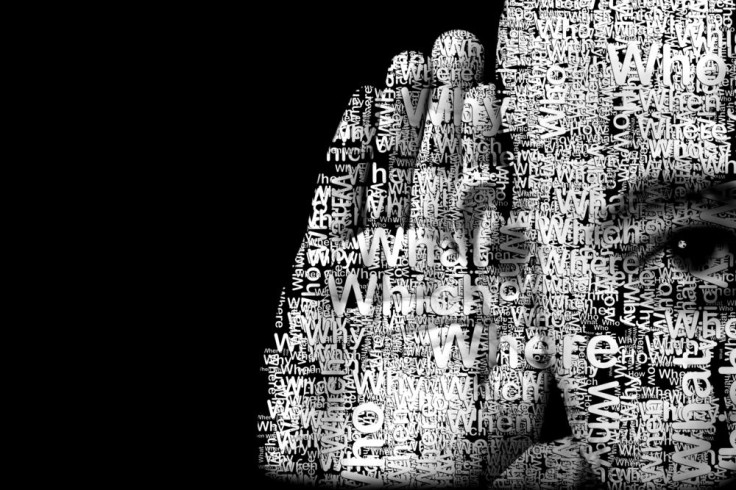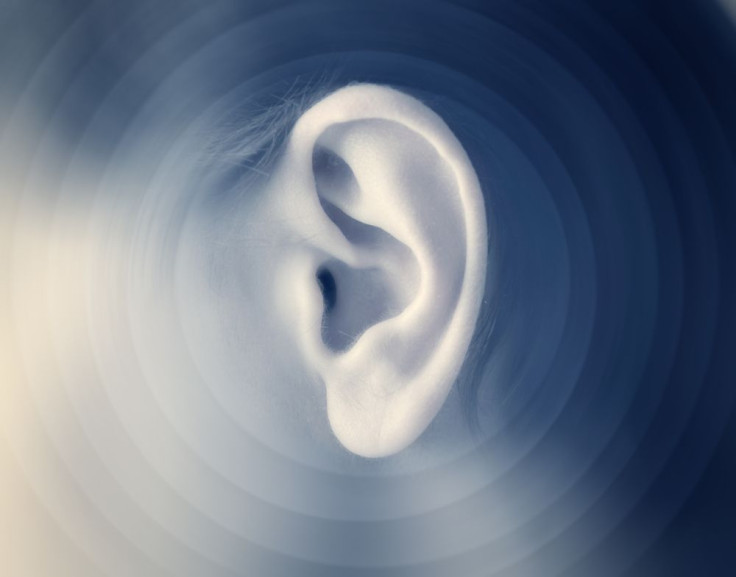Life After Hearing Loss: How The Brain Adjusts To Sensory Impairments, No Matter How Minor

Around five percent of the world’s population experiences some degree of disabling hearing loss. That’s about 360 million people, or one in every 20 individuals. Based on these figures it’s likely that either you or someone close to you will experience a hearing impairment at some point in life. Hearing loss can be caused by a number of factors, ranging from accidents to illness, but while it’s one thing to watch a hearing-impaired character on television, personally losing this sense can be a completely life-altering experience.
65% Under 65
Despite its popular association with old age, according to Dr. Craig Kasper, the chief audiology officer at New York Hearing Doctors in New York City, 65 percent of hearing loss occurs in individuals aged 65 and younger. The fairly recent onset of headphones and electronic audio has further added to the prevalence of hearing loss in younger individuals.
“Our younger generations have been exposed to higher levels of sounds for longer durations,” Kasper told Medical Daily. “We’re seeing hearing loss in younger people.”
Dr. Ed Bravo, president of Audio Help Hearing Centers in New York City told Medical Daily that young people nowadays are presenting “the kind of hearing activity that we normally find in middle-aged people.”

Turning Down The Lights
Hearing loss is rarely sudden. More often it’s a gradual process, Kasper says, akin to turning down the lights.
“They might hear what someone is saying, but they don’t understand it,” he said, “particularly in a noisy environment.”
Tinnitus, or a noise or ringing in the ears, is also a very common sign of a change in your hearing and often the first sign of the onset of hearing loss.
In 2009, blogger Diane T. (who declined to give her full name) began to lose her hearing in her right ear due to an inner ear disorder known as Meniere's disease. She writes about her experience with Meniere's disease and hearing loss in her blog Sweet Catastrophe, and explains that losing your hearing is exactly as you might imagine: scary.
“Fear and anxiety became my constant companions when I was dealing with the worst of it,” Diane told Medical Daily in an email. “I would sit closer to people, blaming the background noise on why I couldn't hear. It made me feel inadequate, especially in a professional sense at work. Like I wasn't competent.”
Meniere’s disease is not like typical hearing impairment in that the degrees of hearing loss can fluctuate over time, and it can produce spontaneous bouts of vertigo. In Diane’s case, the disease significantly compromised her hearing capabilities in one ear, and her doctor told her that complete deafness in the ear was a real possibility.
“I told myself many times that I could handle complete hearing loss, but I knew I was lying to myself,” she said.
During the peak of her hearing loss, Diane explained that she missed out on minor things, such as the mailman pulling up or hearing birds chirping in the trees. “Unless I had absolute silence I missed these noises and more. I started feeling cut off from the world. It was a difficult time.”
Diane’s experiences with hearing loss are not unique, however. Bravo explained that many people find the diagnosis of permanent hearing loss to be devastating.
“Especially younger people,” he said. “They find that it is a sign of getting old. They are broken, they are no longer whole, they are no longer complete.”
Katherine Bouton, the former New York Times editor who wrote Shouting Won’t Help; Why I And 50 Million Other Americans Can't Hear You, her memoir of dealing with adult-onset hearing loss, told a similar story and described the experience as a “blunt and traumatic” process, The New York Times reported.
“We hear as we breathe — effortlessly — until we can’t,” she wrote.
Kasper, however, reassured that not all diagnoses of hearing loss are as traumatic of an experience.
“The vast majority of folks who come in already know that something is going on,” Kasper said. “For the handful of patients who get really emotional, we offer them options and put things into perspective.”

Life After Hearing Loss
There is often a stigma attached to hearing loss that isn’t seen with other impairments. For example, if an individual has trouble seeing, there is little impact to their life other than having to find a new fashionable pair of glasses or unnoticeable contact lenses. It's different with hearing loss.
“When you are told that you have a hearing loss you feel that everything is going down and that you are getting old,” Bravo said.
Patients often think of hearing aids as bulky devices used by their grandparents, but once they realize how discreet and easy to use modern hearing assistance technology is, they may change their minds.
Around 95 percent of cases of hearing loss can be treated with a hearing device. However, getting the hearing aid is only one part of a complicated recovery process.
“We look at hearing devices as a tool out of many tools that we have to help people improve their communication difficulties,” Bravo said. “It’s not just a matter of buying gadgets and everything will be fine. It’s about how their hearing difficulty affects their life and developing a rehabilitation treatment that would include the hearing aid.”
Bravo explained that part of the hearing rehabilitation process includes learning new life skills to adjust to your new sense. This may include learning how to pick the right table at a restaurant far from noise or learning the most effective way to ask for clarification during a conversation.
“I found myself watching people more,” Diane explained. “That way I could move closer if they were going to speak, I focused on non-verbals more, so that even if I missed a word or two I could still understand the general feeling of what they were saying. It was a lot of work.”
However, while Diane made a conscious effort to adjust to her hearing loss, a large amount of this modification is subconscious, as our brains will automatically acclimate to the new sensory input.
Most of us are familiar with stories “heightened senses” in those with sensory impairments, such as the superhuman hearing of the blind superhero “Daredevil.” While the ability may have been glamorized in pop culture, it’s actually a common phenomenon found, perhaps to a lesser degree, in real humans. A recent University of Colorado study, which will be presented at the 169th meeting Acoustical Society of America May 18-22th, found that these heightened sensory abilities caused by sound deprivation did not only exist in those who were profoundly deaf but was present in adult patients with only a mild degree of hearing loss.
This heightening of the senses is due to a phenomenon known as “cross-modal” cortical reorganization. When areas of the brain responsible for processing sound receive little or no stimulation due to hearing impairments, other areas of the brain take over this section. According to the press release, the team found that the brain can reorganize its hearing portion even at the earliest stages of age-related hearing loss.
So, not only is hearing loss highly treatable, but it’s also extremely preventable. Individuals should seek professional advice at the earliest signs of change. This change may include not being able to follow conversations, turning the television up louder than usual, or simply finding that you ask others to repeat themselves more often than usual. The change is usually hard to notice due to its gradual advancement, so it’s best to receive regular hearing check-ups, just as you would for other health concerns.
“No matter if your hearing is normal or you have a slight hearing loss, prevention is important,” Kasper said. “I would encourage everyone to be very mindful of their hearing because it is, no pun intended, a silent disorder.”



























